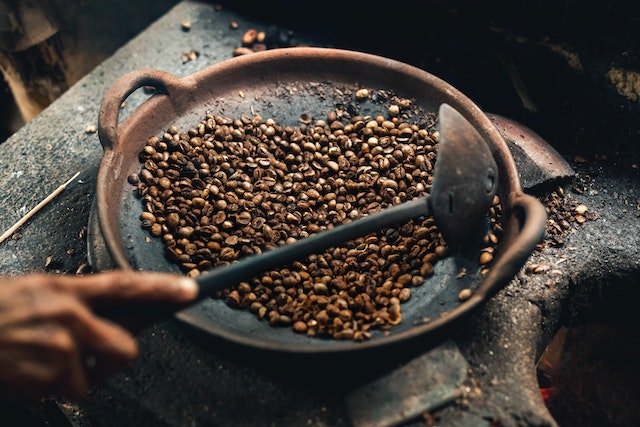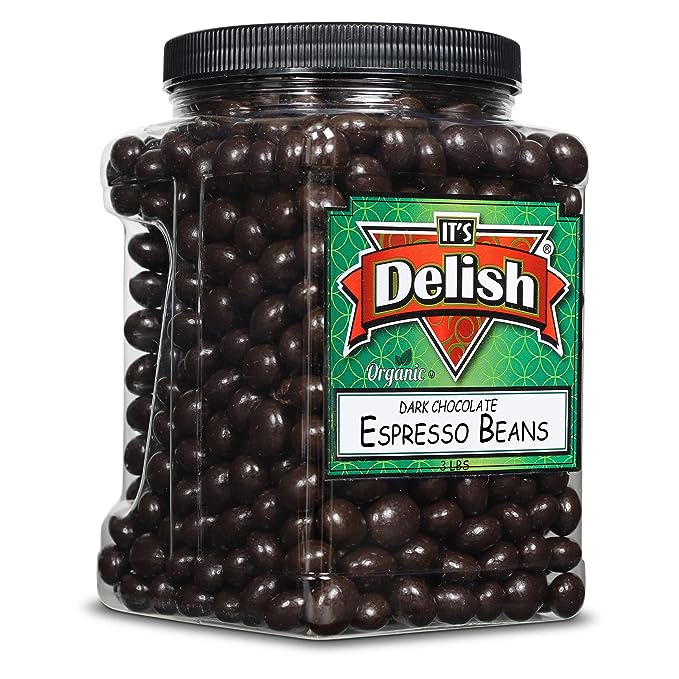Coffee is one of the most beloved beverages around the world. It’s a staple in many households and workplaces, and for a good reason. Caffeine provides a much-needed boost to help us power through the day.
But have you ever considered eating coffee beans instead of just brewing them into a beverage? It might sound strange at first, but eating coffee beans is a growing trend among coffee lovers.
In this blog post, we’ll dive into the pros and cons of eating coffee beans, as well as how to do it safely and effectively. Whether you’re looking to switch up your coffee routine or just curious about this new trend, you’ll find all the information you need here.

The Pros of Eating Coffee Beans
1. Improving Mood and Cognitive Function
One of the most well-known benefits of coffee is its ability to improve mood and cognitive function. This is due to the presence of caffeine, which stimulates the brain and increases alertness.
Eating coffee beans can have the same effect, as the caffeine is absorbed into the bloodstream through the digestive system. In fact, some people claim that eating coffee beans provides a more sustained and intense caffeine boost than drinking coffee.
2. Boosting Metabolism
Another potential benefit of eating coffee beans is the ability to boost metabolism. This is because caffeine is a natural stimulant that can increase the body’s metabolic rate, helping to burn calories more efficiently.
Some studies have also suggested that caffeine can increase fat oxidation, which may be beneficial for weight loss.
3. Reducing the Risk of Certain Diseases
Coffee has been linked to a reduced risk of several diseases, including type 2 diabetes, Parkinson’s disease, and liver disease.
While there is limited research specifically on the benefits of eating coffee beans, it’s possible that they could have similar effects. This is because coffee beans contain a variety of compounds, including antioxidants and polyphenols, which have been shown to have health benefits.
The Cons of Eating Coffee Beans
1. Digestive Issues
One of the main concerns when it comes to eating coffee and espresso beans is the potential for digestive issues. This is because coffee beans are quite hard and can be difficult to digest, which can cause discomfort, bloating, and even constipation.
To avoid these issues, it’s important to chew the beans thoroughly or grind them into a powder before consuming.
2. Caffeine Overdose
While caffeine can provide a number of benefits, it’s important to be mindful of the potential for overdose.
Eating too many coffee beans can lead to symptoms such as jitters, anxiety, and insomnia, and in severe cases, can even be life-threatening. It’s important to consume coffee beans in moderation and to be aware of your own tolerance for caffeine.
3. Addiction
Finally, it’s worth noting that eating coffee beans can potentially lead to addiction. This is because caffeine is a psychoactive drug that can cause physical dependence and withdrawal symptoms.
While addiction is unlikely to occur with moderate consumption, it’s important to be aware of the potential risks.
How to Safely Consume Coffee Beans?
1. Choosing High-Quality Beans
When it comes to eating coffee beans, choosing high-quality beans that are fresh and free from contaminants is important. Look for beans that are sourced from reputable growers and roasted within the past few weeks. These are my personal favorite

2. Roasting and Grinding Properly
To make coffee beans more digestible, it’s recommended to roast them first. This will also help to enhance their flavor.
You can either roast the beans yourself or purchase pre-roasted beans. It’s also important to grind the beans properly, either using a coffee grinder or mortar and pestle, to make them easier to chew and digest.
3. Combining with Other Ingredients
Finally, you can combine coffee beans with other ingredients to make them more palatable and enhance their nutritional value. For example, you could mix them with nuts, seeds, or chocolate to create a tasty and healthy snack.
Other Ways to Enjoy Coffee Beans
Adding to Recipes
Coffee beans can also be added to recipes for a unique flavor and added health benefits. You can use them in desserts such as cakes, cookies, and brownies, or even in savory dishes such as rubs for meats. Just be sure to grind the beans before adding them to your recipe to ensure they blend well.
Brewing as Coffee
Of course, one of the most popular ways to enjoy coffee beans is by brewing them as coffee. While eating the beans themselves can provide a more intense caffeine boost, brewing them allows you to enjoy the full flavor and aroma of the coffee.
You can use a French press, pour-over, or traditional coffee maker to brew your coffee beans.
Frequently Asked Questions (FAQs)
Is it safe to eat coffee beans?
Eating coffee beans in moderation is generally considered safe for most people. However, consuming too many beans can lead to digestive issues, caffeine overdose, and addiction.
How many coffee beans should I eat per day?
It’s recommended to consume no more than 400 milligrams of caffeine per day, which is equivalent to about four cups of coffee or 40 coffee beans.
Can eating coffee beans help with weight loss?
While caffeine has been shown to increase metabolism and fat oxidation, more research is needed to determine whether eating coffee beans specifically can help with weight loss.
What is the best way to store coffee beans?
To keep your coffee beans fresh and flavorful, store them in an airtight container in a cool, dry place. Avoid exposing them to light or moisture, which can degrade their quality.
Conclusion
Eating coffee beans can provide a number of potential benefits, including improved mood and cognitive function, a boosted metabolism, and a reduced risk of certain diseases.
However, there are also some potential drawbacks to be aware of, such as digestive issues, caffeine overdose, and addiction. To safely consume coffee beans, it’s important to choose high-quality beans, roast and grind them properly, and consume them in moderation.
If you’re not a fan of eating them straight, there are plenty of other ways to enjoy the unique flavor and health benefits of coffee beans.






